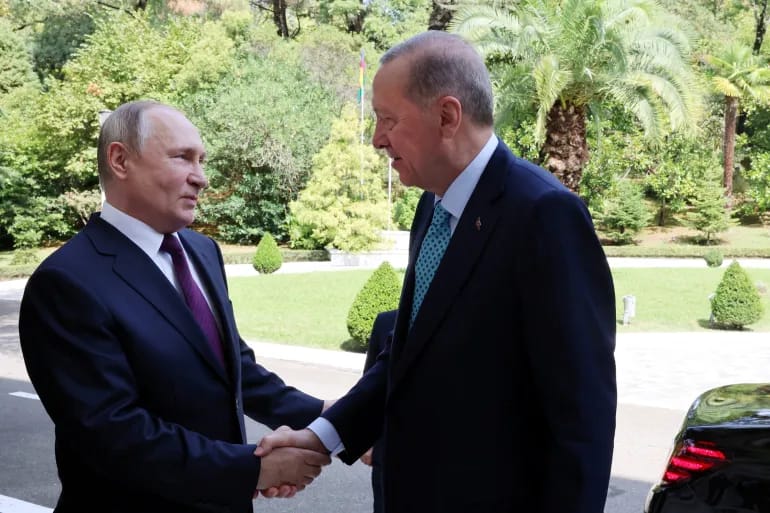Turkish President Recep Tayyip Erdogan has been treading a precarious path, asserting that both the West and Russia are equally reliable. Erdogan’s delicate balancing act, as he puts it, is not merely rhetoric; it’s a carefully calculated strategy that involves maintaining strong ties with both sides amidst the ongoing war between Russia and Ukraine. As tensions escalate, Erdogan’s stance becomes increasingly intriguing, impacting not only Turkey but also the global stage.
Erdogan’s Equidistant Diplomacy
Erdogan’s stance is a diplomatic tightrope walk, with Turkey positioned strategically between the West and Russia. In a recent interview, he expressed his frustration with Turkey’s prolonged efforts to join the European Union (EU) and his trust in Russia’s reliability. His diplomacy is grounded in reaping maximum benefits from all sides of the geopolitical confrontation: the West offers markets, technologies, and economic modernization, while Russia provides essential resources like raw materials, fuel, and a natural gas hub. Turkey also benefits from transit and investments from China.
Aleksey Kushch, a Kyiv-based analyst, explains Erdogan’s approach as a quest for maximal profit from every direction. While this pragmatic stance may seem cynical to some, it has significant implications for Turkey and its role in the ongoing conflict between Russia and Ukraine.
The Impact on Ukraine’s War Effort
While Erdogan’s equidistant diplomacy may raise eyebrows, it has proved beneficial for Ukraine in unexpected ways. Erdogan maintains a friendly relationship with Ukrainian President Volodymyr Zelenskyy, even referring to him as a “dear friend.” He recently extended a warm welcome to Zelenskyy in Istanbul, facilitated negotiations for the release of war prisoners, and extended the “grain deal” to ship Ukrainian wheat via the Black Sea.
Furthermore, Erdogan’s son-in-law’s company produces the Bayraktar attack drones, which have proven to be highly effective against Russian troops. The drones have become so iconic in Ukraine that they are honored in various aspects of Ukrainian life, from radio stations to business menus. Erdogan’s reluctance to take sides in the conflict, while benefiting Turkey, also indirectly aids Ukraine’s war effort.
The Unique Relationship of Erdogan and Putin
Erdogan’s ability to maintain this balance is not without its challenges, but it underscores his pragmatic approach to international relations. Notably, there is a personal connection between Erdogan and Russian President Vladimir Putin. Both leaders were born in the 1950s and have been in power for over two decades, pursuing policies that some critics view as increasingly authoritarian and nationalist.
Despite their differences, Erdogan and Putin find common ground in their pursuit of their nations’ interests. They both share a nostalgia for their countries’ imperial heydays and strive to revive them. This unique relationship is reshaping the centuries-old history of uneasy ties between Russian czars and Ottoman sultans.
In the 1850s, Turkey and Western powers found themselves in opposition to Russia, with Czar Nicolas I famously referring to Turkey as “Europe’s sick man.” Today, the roles have reversed as Russia’s actions in Crimea and Ukraine have strained relations with Turkey and the West.
While past conflicts have strained relations, Erdogan’s pragmatic diplomacy has led to reconciliation, even in the face of significant disputes, such as the downing of a Russian fighter jet by the Turkish air force in 2015. Both leaders have managed to overcome tensions, resulting in mutual benefits, including the flow of Russian gas to Turkey and the creation of a proposed “gas hub.”
As Erdogan continues to navigate this diplomatic minefield, his equidistant approach keeps Turkey at the center of global politics. While critics may see it as opportunistic, Erdogan’s balancing act proves essential for his nation’s interests and positions Turkey as a key player in the ongoing geopolitical dynamics between Russia, Ukraine, and the West.
















